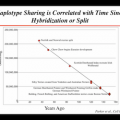在PTE中,无论是Summarise Spoken Text 还是Retell Lecture 的考题大都是从真实的讲座或者演讲中截取的。中间经常夹杂很多不同的环境音。很多同学都反映有时未必是听不懂,而是听不到。鉴于此,墨尔本悉尼文波雅思PTE专门为大家总结了真实讲座的PTE练习,相比新闻音频来说,整体更加接近PTE考试的真题,内容方面,我们也会为大家提供考试中存在的近似题,最近我们会持续更新,敬请期待!
以下是墨尔本悉尼文波雅思PTE培训学校为大家总结的原文:
I’m Doctor Graham Pike from the Department of Psychology at the Open University and I’m a forensic psychologist.
Forensic psychology is concerned with all aspect of crime in a criminal investigative procedure. One thing forensic psychologists have done is look at witness memory, particularly how we can help the police to get the most out of what a witness has seen of a crime. So for example, there are interviewing techniques based on psychological theories of memory that tell police how to go about interviewing a witness. One thing that might happen is that we allow a witness simply to recall everything they can without interrupting them. Something else we might do is try to mentally reinstate the crime scene to the witness, that is to get them to imagine as if they’re back at the crime scene, to think about the weather, the temperature and the smells there. By doing that the witness can actually remember more accurate information. One of the reasons it’s so important to look at witness memory is there’s an expectation that our brains act a bit like a computer. So for example the information goes in, is stored perfectly and can just be retrieved perfectly. However that’s not true. Witness quite commonly will forget certain pieces of information, not be able to remember details, and will change their mind about what exactly happened and when, but that should be expected. So psychology’s important because it can tell the courts it can tell the police what would make a good witness and what to expect, and not to overestimate exactly what to expect from a witness.
文波陪伴,英语不难





